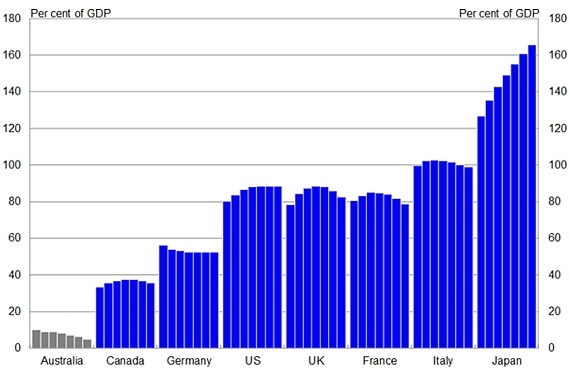New Idea journalism lets Abbott off the hook
For the past several weeks the media has been obsessed with personality instead of policy. Based on the balance of probabilities Tony Abbott will be prime minister come September. Yet we have little real understanding of what he’ll do once he’s in the lodge.
This is what ultimately matters for the public, not who leads Labor to an election defeat.
I have written extensively about the unanswered questions on the Liberal Party’s climate change policy, but it is not the only gaping hole.
Irrespective of what the government plans do about education, the Gonski Review revealed that our current funding model for school education fails to address entrenched disadvantage. This must be addressed.
Christopher Pyne is correct that the answer is not simply throwing more money at the problem. As has been carefully documented by my former colleague at the Grattan Institute, Ben Jensen, funding to school education has increased substantially, yet educational outcomes have failed to improve.
Nonetheless the current federal government education funding model is badly broken and doesn’t allocate money towards those areas where it would make the greatest difference. The Coalition, by saying it’ll stick with the current funding model, has squibbed it.
We also face a potentially growing gap between the demands on government services and the taxation revenue raised to fund these services, as detailed by Treasury Secretary Martin Parkinson. To address this, as outlined in the Henry Review, we need to shift a proportion of our tax base towards those things which are less able to migrate across country borders, and also away from taxing things we want to encourage, towards things we should discourage (pollution, traffic congestion). The states, meanwhile, are excessively dependent on sources of revenue which are incredibly distortive (stamp duty) and even socially inequitable and disruptive (gambling).
There are also a range of government transfers and tax concessions which don’t provide economic benefits nor address social disadvantage. As another former Grattan colleague, Saul Eslake, has convincingly explained, negative gearing of investment properties and the first home owners grant do not improve the affordability of housing. Also middle class welfare such as the baby bonus and Family Tax Benefit B are ridiculous election ploys that cost the budget billions.
In addition, Abbott’s pledge for government paid parental leave to cover salaries all the way up to an annual salary of $150,000 is outrageously generous.
While concern over the Australian government budgetary position in the short-term is ridiculously overblown (see chart below to put it all in context), the Coalition needs to face up to some tough decisions for longer-term budgetary sustainability.
Getting rid of the schoolkids bonus is a step in the right direction, but Abbott must be dreaming if he thinks he’ll get anywhere close to addressing his budget black holes by relying on some ephemeral concept of “cutting government waste”. Precisely what waste is he talking about? And precisely which public servant positions will go?
Australian government net debt in international context

Note: Australian data are for the Australian Government general government sector and refer to financial years beginning 2011-12. Data for all other economies are total government and refer to calendar years beginning 2011.
Source: IMF Fiscal Monitor April 2012 and Treasury.
As for the Coalition’s Direct Action policy, as one Liberal party member put it to me, “it’s like the local council removing all restrictions on littering and then going around paying people to pick-up their own rubbish.”
If the Coalition is genuinely serious about meeting the 5 per cent reduction target primarily via Direct Action they better start finding some pretty big budget savings elsewhere…or new taxes.
Broad-based business lobby groups (other than the AiG it should be said) are doing the bulk of their membership a disservice by cheering on the demise of carbon pricing. That’s because ultimately it is their taxes as well as those of income-earners that will be siphoned off to pay for less than 500 firms to reduce their pollution.
Small business – the vast bulk of whom have very low carbon emissions per unit of economic output – should be outraged about Direct Action. It sends completely the wrong message – pollute and you will be rewarded by other taxpayers.
The Coalition should no longer be allowed to duck and weave questions about how they’ll address the challenges of the country with the defence that, “we’re not the government”.
What a joke. Who cares if they’re not the government – do they want to be the government in a few months time? If so they better well explain what it is they plan on doing.
For the last three years the Coalition has been putting out complete and utter rubbish about the economic impacts of the carbon tax with almost complete impunity. Last Monday on the ABC’s Q&A program, Barnaby Joyce admitted that his claim about the carbon tax’s astronomical impact on the prices of groceries was “hyperbole”. Sophie Mirabella issued similar hyperbole this week, claiming that the carbon tax was the cause of record numbers of company insolvencies. Where was her evidence? Yet this stuff is sympathetically publicised by some of our most well-read media outlets without being subjected to any kind scrutiny.
The media should learn from yesterday’s complete non-event that while New Idea-magazine personality-based journalism may get your readership watching, it’s missing the main game.
















